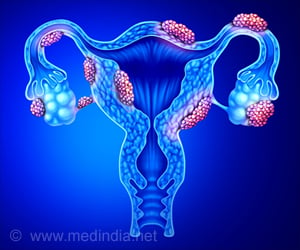The importance of iron supplements during pregnancy has been driven home by a new study in China.
The importance of iron supplements during pregnancy has been driven home by a new study in China.
A team of investigators from the Xi’an Jiaotong University, and The George Institute and the School of Public Health, the University of Sydney, found that iron supplements during pregnancy played a significant role in preventing deaths in infants under four weeks of age.Professor Hong Yan, Principal Investigator of this study, Xi’an Jiaotong University College of Medicine said, "Our research demonstrates that nutrient supplements for pregnant women in developing countries need to have an adequate amount of iron to prevent premature births and reduce infant mortality."
The study, which took place over four years in two poor rural counties in northwest China, assessed the impact of taking iron/folic acid and multiple micronutrient supplements (containing 15 minerals and vitamins) during pregnancy, compared with folic acid alone.
While the World Health Organisation (WHO) and the United Nations Children’s Fund (UNICEF) have proposed the use of multiple micronutrient supplements during pregnancy, this study found that although multiple micronutrients did improve birth weight more than iron folic acid, this greater increase in birth weight did not translate into reductions in neonatal mortality (infant deaths in the first month following birth).
"After comparing our results with other studies in Indonesia, India, the United States, and Bangladesh, it appeared the reduction in neonatal mortality was related to the increased duration of pregnancy from the iron in the supplements," Associate Professor Michael Dibley, School of Public Health and George Institute for International Health at the University of Sydney said.
In China, the most populated developing country in the world, neonatal mortality accounts for more than 50% of the deaths of children under five. Children with low birth weight are at a higher risk of mortality, and one of the major causes of low birth weight in developing countries is the poor nutritional status of the mother before and during pregnancy.
Advertisement
The research team collaborated with the local health services at the county, township and village levels, and local government, to implement the study. This approach has provided a suitable model to upscale the intervention on a larger scale in the future.
Advertisement
The project was supported by grants from UNICEF and the National Natural Science Foundation of China.
Source-Medindia
GPL/SK














